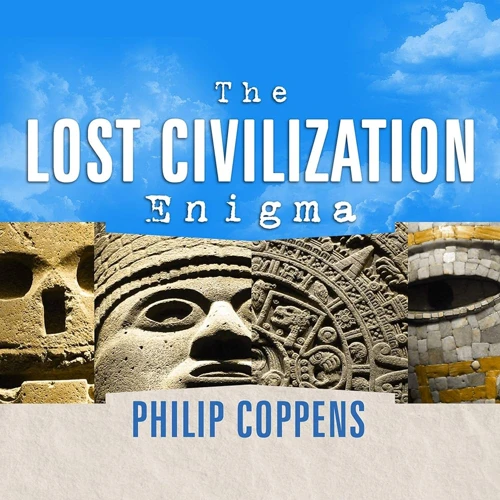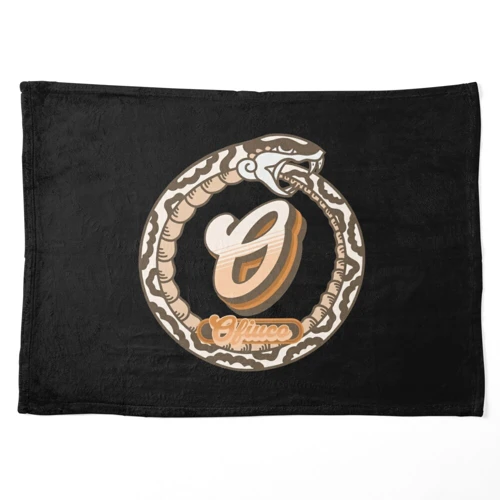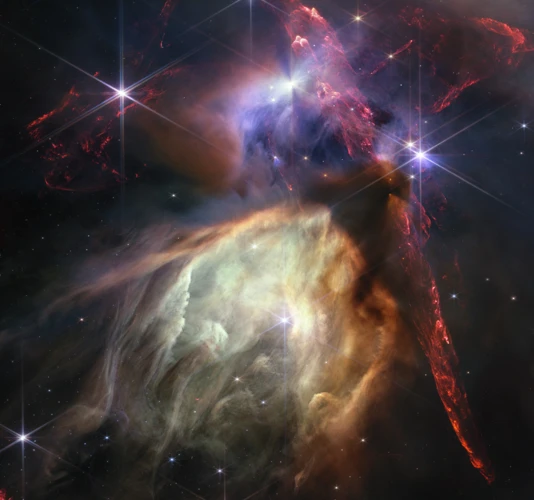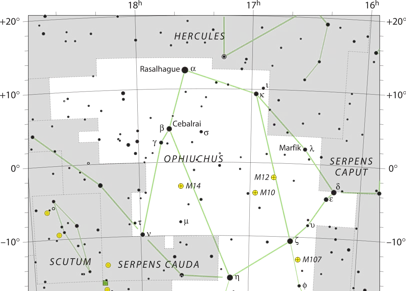With the constant evolution and exploration of the world around us, it is no surprise that even the symbols and representations we have come to know have their own intriguing origins and stories. One such symbol is the Ophiuchus symbol, a mysterious and enigmatic figure that has captured the imaginations of many. In this article, we will delve into the ancient origins of the Ophiuchus symbol, exploring its mythological roots and the ancient representations associated with it. We will then navigate through its inclusion in astrology, the controversies and debates surrounding it, and its modern interpretations in popular culture. Join us as we unravel the captivating history and evolution of the Ophiuchus symbol.
Contents
- The Ancient Origins
- The Symbol in Astrology
- Modern Interpretations
- Conclusion
-
Frequently Asked Questions
- 1. Is Ophiuchus a zodiac sign?
- 2. What does the Ophiuchus symbol represent?
- 3. Are people born under the sign of Ophiuchus different?
- 4. Can Ophiuchus replace one of the existing zodiac signs?
- 5. How does Ophiuchus influence astrology interpretations?
- 6. Are there specific personality traits associated with Ophiuchus?
- 7. Why is there controversy surrounding the inclusion of Ophiuchus?
- 8. Can Ophiuchus be used in horoscope predictions?
- 9. Has Ophiuchus gained popularity in recent years?
- 10. How is Ophiuchus represented in popular culture?
- References
-
Frequently Asked Questions
- What is the Ophiuchus symbol?
- What are the ancient origins of the Ophiuchus symbol?
- What is the myth behind Ophiuchus?
- How was Ophiuchus represented in ancient times?
- What is the connection between the Ophiuchus symbol and astrology?
- What is astrology and how does it relate to the Ophiuchus symbol?
- Why was Ophiuchus included in astrology?
- What are some controversies and debates surrounding Ophiuchus in astrology?
- How has the Ophiuchus symbol experienced a resurgence in modern times?
- How does Ophiuchus appear in popular culture?
- References
- Read More
The Ancient Origins

The Ancient Origins of the Ophiuchus symbol are shrouded in myth and mystery. One of the most prominent myths surrounding Ophiuchus is rooted in Greek mythology. Legend has it that Ophiuchus represents Asclepius, the son of Apollo and a skilled healer. Asclepius was known for his extraordinary abilities to cure diseases and even bring the dead back to life. However, his power threatened the balance of life and death, leading to Zeus’ interference, who struck Asclepius down with a thunderbolt. Enraged by the loss of his son, Apollo pleaded with Zeus to honor Asclepius’s skills and contributions by placing him in the heavens. Thus, Ophiuchus became a constellation in the night sky, forever immortalized as a symbol of healing and wisdom. Ancient representations of Ophiuchus vary across different cultures and time periods. In Egyptian mythology, Ophiuchus is associated with the god Serapis, characterized by his serpent entwined staff, symbolizing the power of healing and rejuvenation. Similarly, in Mesopotamian astrology, Ophiuchus is identified with the god Enki, the god of water and wisdom, often depicted with two entwined serpents on his shoulders. These ancient representations showcase the enduring significance and multifaceted nature of the Ophiuchus symbol throughout history.
The Myth of Ophiuchus
The Myth of Ophiuchus is deeply rooted in Greek mythology and offers a rich narrative surrounding the constellation and its symbolic significance. According to the myth, Ophiuchus represents the figure of Asclepius, who was the son of Apollo and a gifted healer. Asclepius possessed remarkable healing abilities and was even capable of reviving the dead. However, his extraordinary powers threatened the balance between life and death, leading to the intervention of Zeus. Consumed with jealousy and fearing the disruption caused by Asclepius’ actions, Zeus decided to strike him down with a thunderbolt. Apollo, devastated by the loss of his son, pleaded with Zeus to honor Asclepius’ contributions in some way. As a result, Zeus placed the mortally wounded Asclepius among the stars, transforming him into the constellation Ophiuchus. This captivating tale not only showcases the immense skill and potential of Asclepius as a healer, but it also highlights the delicate equilibrium between life and death in Greek mythology. The inclusion of the myth of Ophiuchus in astrology further amplifies its enduring significance and intrigue.
Ancient Representations
Ancient representations of the Ophiuchus symbol vary across different cultures and time periods, showcasing the diverse and rich tapestry of beliefs surrounding this enigmatic figure. In Egyptian mythology, Ophiuchus is often associated with the god Serapis. Serapis is depicted with a serpent entwined staff, symbolizing the power of healing and rejuvenation. The intertwining of the serpent with the staff represents the balance between life and death, a concept deeply ingrained in Egyptian beliefs. This representation highlights Ophiuchus as a symbol of wisdom and the healing arts in Egyptian culture.
Similarly, in Mesopotamian astrology, Ophiuchus is identified with the god Enki. Enki is known as the god of water and wisdom and is often depicted with two entwined serpents on his shoulders. The serpents symbolize the dual nature of Ophiuchus, representing both healing and transformation. The association with water further emphasizes the significance of Ophiuchus as a symbol of healing and renewal.
In Greek mythology, Ophiuchus is linked to Asclepius, the son of Apollo and a skilled healer. Asclepius was often depicted holding a rod with a single serpent wrapped around it. This representation is commonly known as the Rod of Asclepius and is widely recognized as a symbol of medicine and healing.
These ancient representations of Ophiuchus highlight the universal themes of wisdom, healing, and balance that surround this symbol. Across different cultures, the serpent motif is consistently intertwined with the concept of healing and the pursuit of knowledge. The enduring presence of Ophiuchus in ancient mythologies reflects humanity’s fascination with the mysteries of the universe and our eternal quest for understanding and wellbeing.
The Symbol in Astrology

In the realm of astrology, the Ophiuchus symbol has found its place among the familiar constellations and zodiac signs. Astrology, a practice that involves interpreting celestial alignments to understand personality traits and predict future events, has a rich history spanning thousands of years. While the traditional zodiac consists of twelve signs, some astrologers have incorporated Ophiuchus as a thirteenth sign, positioned between Scorpio and Sagittarius. Ophiuchus is associated with attributes such as wisdom, healing, and transformation. Its inclusion in astrology has sparked controversies and debates among astrologers and enthusiasts alike. Some argue that the addition of Ophiuchus provides a more accurate representation of the celestial landscape, while others believe it disrupts the established system. Nevertheless, the presence of Ophiuchus in astrology showcases the evolutionary nature of this ancient practice, as it continues to adapt to new perspectives and interpretations. For more information on celestial events and predictions, visit our article on eclipse predictions.
Introduction to Astrology
Astrology, the study and interpretation of celestial bodies’ influence on human behavior and events, has been an integral part of various cultures throughout history. The practice revolves around the belief that celestial bodies, such as the sun, moon, planets, and constellations, hold significant influence on an individual’s personality traits and future outcomes. Astrology is often used to create birth charts, also known as horoscopes, which offer insights into an individual’s characteristics and potential life experiences based on the alignment of stars and planets at the time of their birth. Dating back millennia, astrology has played a central role in shaping beliefs and guiding decisions in fields such as medicine, agriculture, and politics. From the ancient Babylonians to the Egyptians, Greeks, and Romans, cultures across the globe have looked to the stars for guidance and understanding. Today, astrology continues to captivate people’s imaginations, with millions of individuals turning to their daily horoscopes for guidance and reflection. While many view astrology as a pseudoscience, others find solace and personal meaning in its teachings. It is important to note that astrology should be approached with an open mind and as a tool for self-reflection rather than an absolute predictor of events. To truly understand the inclusion of Ophiuchus in astrology, we must explore its historical significance and implications within this expansive field.
The Inclusion of Ophiuchus
In the realm of astrology, the inclusion of Ophiuchus has been a subject of debate and controversy. Traditionally, the zodiac comprises twelve signs, each representing a specific period of the year. However, the discovery of Ophiuchus and its potential influence on astrological interpretations has challenged this longstanding system. Ophiuchus is often referred to as the “thirteenth sign,” positioned between Scorpio and Sagittarius. Proponents argue that the inclusion of Ophiuchus expands the horizons of astrological readings, offering new insights and dimensions to individuals’ birth charts. They claim that those born under the sign of Ophiuchus possess unique characteristics associated with healing, wisdom, and a deep connection to the spiritual realm. However, critics argue that the addition of Ophiuchus disrupts the established balance and precision of astrology, raising questions about the validity and accuracy of astrological interpretations. Despite the controversies, some astrologers and enthusiasts have embraced Ophiuchus, integrating it into their readings and exploring its potential impact on personal horoscopes. The inclusion of Ophiuchus has undoubtedly sparked discussion and further exploration within the realm of astrology, challenging traditional beliefs and prompting individuals to reconsider their astrological identities and influences.
Controversies and Debates
Controversies and debates surrounding the inclusion of Ophiuchus within astrology have been ongoing for many years. One of the main points of contention is the impact it would have on the existing zodiac signs. Traditional astrology follows a 12-sign system, with each sign representing specific personality traits and characteristics. The addition of Ophiuchus would disrupt this established framework and potentially require significant adjustments to the dates associated with each sign. Astrologers and enthusiasts have differing opinions on whether or not Ophiuchus should be recognized as a legitimate zodiac sign. Some argue that the inclusion of Ophiuchus brings a more accurate alignment with the constellations in the night sky, while others believe it would be unnecessary and confusing. This debate has sparked passionate discussions within the astrology community, with both sides presenting compelling arguments to support their views. While some astrologers have embraced the idea of Ophiuchus as a thirteenth sign, others remain skeptical, concerned that it may dilute the significance and meaning of the existing signs. The controversy surrounding Ophiuchus in astrology continues to intrigue and divide individuals with a fascination for the cosmic arts.
Modern Interpretations

Modern interpretations of the Ophiuchus symbol continue to captivate and inspire individuals across various realms. In recent years, there has been a resurgence of interest in Ophiuchus in astrology. Some astrologers argue for the inclusion of Ophiuchus as the 13th zodiac sign, challenging the traditional twelve sign system. This reinterpretation highlights Ophiuchus as representing qualities such as transformation, healing, and spiritual awakening. However, this inclusion has sparked debates and controversies within the astrology community, with some arguing that it disrupts the established system and dilutes the meanings associated with the existing signs. Outside of astrology, Ophiuchus has found its way into popular culture, appearing in books, movies, and artwork. Its mysterious and symbolic nature makes it a compelling element for storytellers and artists to explore. Whether in the realm of astrology or popular culture, Ophiuchus continues to evolve and provoke the imagination of those fascinated by its enigmatic character.
The Resurgence of Ophiuchus
The Resurgence of Ophiuchus in recent years has sparked renewed interest and debate within astrology and popular culture. In the astrological community, there has been a growing movement advocating for the inclusion of Ophiuchus as the 13th zodiac sign, alongside the traditional 12 signs. This resurgence can be attributed to the increased accessibility of astrological information through the internet and social media platforms, allowing individuals to explore and discover new aspects of astrology. While some astrologers argue that incorporating Ophiuchus provides a more accurate representation of the celestial alignment, others remain skeptical and adhere to the traditional zodiac system. The resurgence of Ophiuchus has also made its mark on popular culture. It has been featured in various books, movies, and television shows, often portraying Ophiuchus as a mysterious and powerful character with unique abilities. This newfound attention has sparked curiosity and intrigue, leading more people to delve into the history and symbolism of Ophiuchus. As society continues to embrace diverse perspectives and alternative interpretations, the resurgence of Ophiuchus serves as a reminder of the ever-evolving nature of astrology and its ability to captivate and inspire us.
Ophiuchus in Popular Culture
Ophiuchus has made its mark in popular culture, becoming a source of fascination and inspiration in various artistic mediums. In literature, the symbol of Ophiuchus has been incorporated into imaginative tales, often representing characters with mysterious and healing abilities. This connection to healing is also evident in modern-day television shows and movies, where characters holding the traits of Ophiuchus are portrayed as powerful healers or individuals with profound wisdom. Ophiuchus has also found its way into the world of music, with songs and albums referencing the symbol and its associated themes. Additionally, Ophiuchus has become a popular choice for tattoos, with many individuals embracing the symbol as a representation of their own healing journey or spiritual beliefs. It is clear that Ophiuchus has left its mark on popular culture, captivating the hearts and minds of many who are drawn to its mystical and transformative qualities. Whether it be through literature, film, music, or personal expression, Ophiuchus continues to inspire and captivate individuals around the world with its rich symbolism and intriguing origins.
Conclusion

In conclusion, the Ophiuchus symbol holds a fascinating history that spans across ancient mythology, astrology, and modern interpretations. Its origins in Greek mythology, with the story of Asclepius, highlight its association with healing and wisdom. Ancient representations of Ophiuchus in Egyptian and Mesopotamian cultures further emphasize its significance as a symbol of rejuvenation and divine knowledge. In the realm of astrology, the inclusion of Ophiuchus has sparked debates and controversies, challenging the traditional zodiac system. However, regardless of its astrological implications, Ophiuchus continues to capture the imagination of many, leading to its revival and resurgence in modern times. Today, you can find Ophiuchus represented in various forms of popular culture, such as books, movies, and artwork, further fueling its intrigue and allure. Whether you view Ophiuchus as an astrological sign or a symbol rich in mythological history, there is no denying its enduring impact and captivating journey through time. To explore more about ancient cultures and their significance, check out our article on exploring the flavors of ancient Roman food, or dive into the fascinating role of animals in African mythology in our article on the role of animals in African mythology.
Frequently Asked Questions

1. Is Ophiuchus a zodiac sign?
Ophiuchus is not traditionally recognized as one of the twelve zodiac signs. However, it is considered the 13th zodiac sign in sidereal astrology, which takes into account the actual positions of the constellations in the sky.
2. What does the Ophiuchus symbol represent?
The Ophiuchus symbol represents healing, wisdom, and rebirth. It is often associated with the Greek god Asclepius, who was known for his extraordinary healing abilities.
3. Are people born under the sign of Ophiuchus different?
Since Ophiuchus is not widely recognized as a zodiac sign, people born “under” Ophiuchus would typically be considered to fall under the neighboring zodiac sign, depending on their birth date.
4. Can Ophiuchus replace one of the existing zodiac signs?
While Ophiuchus has gained attention and sparked debates about its inclusion, it has not replaced any of the twelve traditional zodiac signs used in Western astrology.
5. How does Ophiuchus influence astrology interpretations?
In astrology, the influence of Ophiuchus is primarily explored in sidereal astrology, where it is considered a key factor in determining an individual’s birth chart and astrological profile.
6. Are there specific personality traits associated with Ophiuchus?
As Ophiuchus is not an officially recognized zodiac sign in mainstream astrology, there are no specific personality traits directly associated with it. However, some people may resonate with the characteristics traditionally attributed to neighboring signs.
7. Why is there controversy surrounding the inclusion of Ophiuchus?
The controversy surrounding Ophiuchus stems from the differing opinions within the astrological community regarding its significance and the potential shift in the established zodiac system.
8. Can Ophiuchus be used in horoscope predictions?
As Ophiuchus is not a widely recognized zodiac sign, it is not commonly used in horoscope predictions. However, individuals who identify with this sign may seek personalized interpretations from astrologers who consider Ophiuchus in their practice.
9. Has Ophiuchus gained popularity in recent years?
Ophiuchus has gained some popularity in recent years due to increased interest in astrology and the widespread sharing of information online. However, its recognition and inclusion in mainstream astrology remain limited.
10. How is Ophiuchus represented in popular culture?
Ophiuchus has made appearances in various forms of popular culture, including literature, films, and art. It is often depicted as a figure holding a serpent, symbolizing healing and wisdom.
References
Frequently Asked Questions

What is the Ophiuchus symbol?
The Ophiuchus symbol is a representation of the constellation known as Ophiuchus, which is often depicted as a man holding a snake. It is a symbol that holds both astronomical and astrological significance.
What are the ancient origins of the Ophiuchus symbol?
The origins of the Ophiuchus symbol can be traced back to ancient civilizations such as the Greeks and Babylonians. It has its roots in mythology and ancient astronomical observations.
What is the myth behind Ophiuchus?
In Greek mythology, Ophiuchus is associated with the story of Asclepius, the son of Apollo. Asclepius was a skilled healer who could bring the dead back to life. This myth plays a significant role in the symbolism of Ophiuchus.
How was Ophiuchus represented in ancient times?
In ancient times, Ophiuchus was often depicted as a man holding a snake. This representation highlights the association between Ophiuchus and healing, as the snake is a symbol of rejuvenation and renewal.
What is the connection between the Ophiuchus symbol and astrology?
In astrology, Ophiuchus is considered as the 13th zodiac sign, although it is not officially recognized by Western astrology. Its inclusion in astrology has sparked debates and controversies among astrologers.
What is astrology and how does it relate to the Ophiuchus symbol?
Astrology is the belief system that suggests a connection between the positions and movements of celestial bodies and events that occur on Earth. The Ophiuchus symbol is tied to astrology as it represents one of the potential zodiac signs.
Why was Ophiuchus included in astrology?
Ophiuchus was included in astrology due to its alignment with the ecliptic, the apparent path the Sun takes in the sky as observed from Earth. This led to its consideration as a potential zodiac sign, although it is not widely recognized.
What are some controversies and debates surrounding Ophiuchus in astrology?
The inclusion of Ophiuchus as a zodiac sign has sparked debates among astrologers. Some argue that it disrupts the traditional zodiac system, while others believe it offers a more accurate representation of the celestial alignments.
How has the Ophiuchus symbol experienced a resurgence in modern times?
In recent years, there has been a resurgence of interest in the Ophiuchus symbol. This can be attributed to its increased visibility in popular culture, as well as a renewed interest in alternative astrology systems.
How does Ophiuchus appear in popular culture?
Ophiuchus has made appearances in popular culture in various forms, such as in books, movies, and artwork. It is often portrayed as a mysterious and powerful figure associated with healing and transformation.







